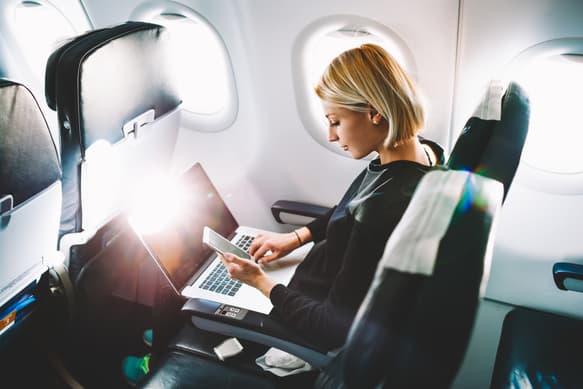Living away from home allowance.
You could be exposing yourself to Fringe Benefits Tax (FBT)! Find out how putting some paperwork together can save you thousands in unwanted FBT.

It is worth pointing out an important distinction in tax rules, that being the distinction between a “travel allowance” and a “living-away-from-home allowance” (LAFHA). A travel allowance will cover an employee who is travelling for work and an LAFHA will cover someone who is required to relocate temporarily for work. Generally speaking, if an employee is spending less than 21 consecutive nights away from home, the ATO will consider it a travel allowance and not living away from home.
Employees regularly travel away from home for a finite period to perform their usual work duties. It may be because of a contract with a customer located in another state or country, or it may be that an employee is needed to train employees in an interstate office on a program or procedure. In these situations, it is common for an employer to provide an after-tax allowance to these traveling employees to cover additional expenses that they incur because they are required to live away from their usual place of residence.
This after-tax payment is termed a living-away-from-home allowance (LAFHA) and can impose fringe benefits tax liabilities on the employer. The tax imposed can be costly, so it is vital that employers are aware that the Australian Taxation Office (ATO) provide tax concessions that can reduce or eliminate the FBT liability, potentially saving employers thousands in tax. Provided all the below conditions are met, the FBT liability can be eliminated but will still need to be included on the employers’ FBT return.
- To access the tax concessions, the allowance paid to the employee must satisfy several conditions, including:The employee must maintain a home in Australia where they usually live, and this home must be available for them to live in while the allowance is paid. In other words, they cannot rent out their home while they travel for work if they are home owners, nor end their lease on their home if they are renters.
- The allowance relates to the first twelve month-period of travel away from home.
- The appropriate declarations have been made and signed by the employee relating to the period when their employment duties required them to live away from home.
- The allowance paid to the employee does not exceed the ATO’s reasonable food and drink amounts per week for the FBT year the allowance was paid.
An alternative arrangement to paying an after-tax allowance to an employee include:
- Reimbursing the employee for the actual food and/or accommodation costs they incurred while working at the new location;
- Supplying the food and/or accommodation to the employee.
The most important part of providing a LAFHA to an employee is making sure the appropriate declarations are in place. Employers should view each arrangement on an employee-by-employee basis to determine whether they are exposed to FBT and should contact their Accru advisor to discuss each arrangement prior to proving the benefit.
If you want to find out more about Fringe Benefits Tax or need assistance with a tax query, please contact one of our Tax Specialists who will be able to assist you transition to an appropriate online option. Complete your contact details below or give us a call on (03) 9835 8200.
